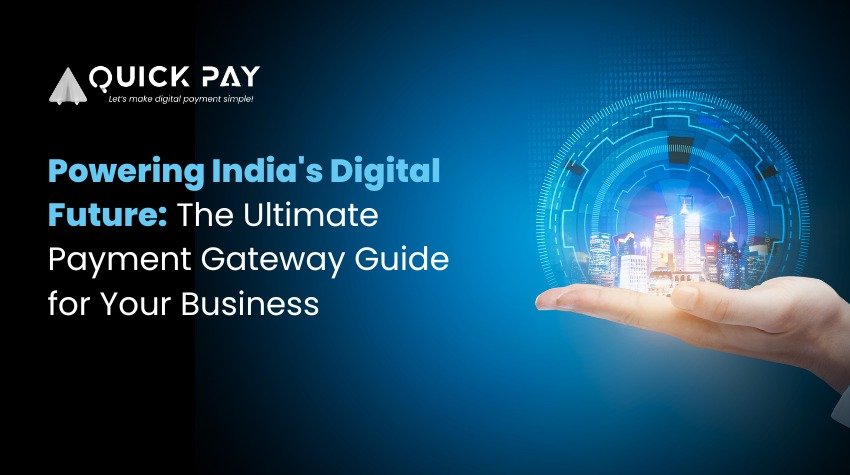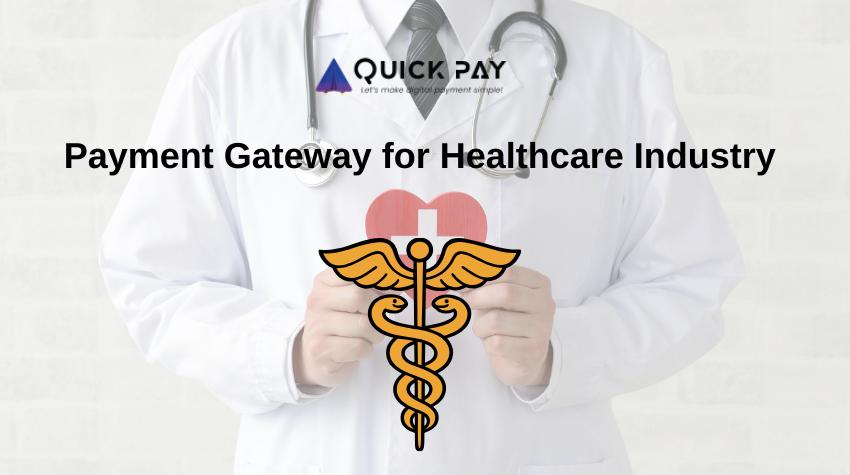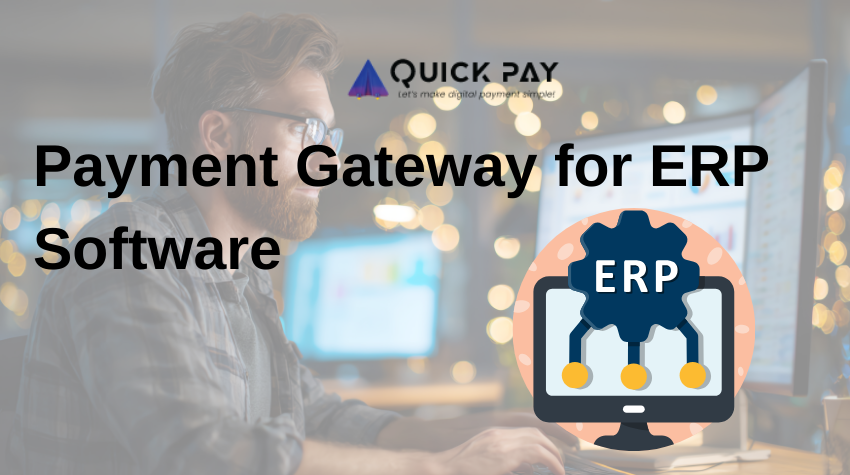Payment Gateway: Your Business's Digital Superpower for Secure and Fast Transactions
In today's fast-paced digital economy, customers expect instant gratification and seamless experiences. For businesses, this means offering payment options that are not just convenient but also secure and fast. This is where a payment gateway steps in, transforming how you do business and becoming an essential tool for growth. If you're looking for the best payment gateway or a top payment gateway solution, understanding its core functions is crucial.
What Exactly Is a Payment Gateway? A Deep Dive
At its heart, a payment gateway is a technological bridge that securely connects your business's online or in-person payment system (like your website, app, or point-of-sale terminal) to the financial networks involved in processing a transaction. It's the digital equivalent of a physical card swipe machine, but far more powerful and versatile.
In simpler terms: When a customer wants to pay you online, the payment gateway is the system that takes their payment information, makes sure it's safe, gets approval from their bank, and then tells your business whether the payment went through or not.
The Detailed Journey: How a Payment Gateway Works
To truly appreciate its value, let's break down the intricate steps a payment gateway orchestrates in mere seconds:
- Customer Initiates Payment: The journey begins when your customer decides to make a purchase. They add items to their cart and proceed to the checkout page on your website or app.
- Information Collection & Encryption: The customer enters their payment details (e.g., credit card number, UPI ID, net banking credentials). The payment gateway immediately collects this sensitive information. Crucially, it then encrypts this data - turning it into a secret code - making it unreadable to anyone trying to intercept it.
- Sending the Authorization Request: The encrypted data is then sent by the payment gateway to the "payment processor." This processor acts as another intermediary, routing the request to the customer's bank (known as the "issuing bank") via the relevant card network (like Visa, Mastercard, or RuPay).
- Bank Verification and Decision: The issuing bank quickly checks several things:
- Does the customer have enough funds or credit available?
- Is the card valid and not expired?
- Does this transaction look legitimate, or are there signs of fraud? Based on these checks, the bank sends back an "approved" or "declined" message.
- Gateway Communicates the Outcome: The payment processor sends the bank's response back to the payment gateway. The gateway then relays this message to your website or app, which in turn displays the result to the customer (e.g., "Payment Successful" or "Payment Failed").
- Settlement and Funds Transfer: If the payment is approved, the funds are held by the acquiring bank (your business's bank) or the payment processor. After a short period (often the next business day, known as T+1 settlement, or sometimes even same-day settlements for fast payment gateway providers), these funds are transferred into your actual business bank account.
This entire complex process, from clicking "Pay Now" to receiving confirmation, typically happens in under 3 seconds, providing a seamless experience for your customers.
Payment Gateway vs. Payment Processor vs. Payment Service Provider (PSP): Understanding the Roles
These terms are often used interchangeably, but they represent distinct, though interconnected, functions in the payment ecosystem. Understanding their differences is key to choosing the right solution.
In essence: You need a payment gateway to collect information and a payment processor to move money. A PSP bundles both, offering a more convenient, all-in-one solution, especially beneficial for small and medium-sized businesses that might not want to manage separate contracts with different entities.
Why Every Business Needs a Payment Gateway: The Core Benefits
Regardless of your business size or type, integrating a payment gateway is no longer a luxury-it's a fundamental pillar for modern commerce. Here's why:
1. Unmatched Transaction Security: The Foundation of Trust
(Keywords: secure payment gateway, transaction security, PCI-DSS compliance, fraud detection)
Online fraud is a constant threat. A secure payment gateway acts as your first line of defense, safeguarding both your business and your customers' sensitive financial information.
- Robust Encryption (SSL/TLS): This is like locking sensitive data in a digital vault. When a customer enters their details, SSL/TLS protocols encrypt the information, making it unreadable as it travels across the internet. Even if intercepted, without the decryption key, the data is useless to fraudsters.
- PCI-DSS Compliance: The Payment Card Industry Data Security Standard (PCI-DSS) is a global set of rules for handling cardholder data. A top payment gateway will be PCI-DSS compliant, meaning they adhere to the strictest security measures, reducing your business's risk and liability significantly. This compliance is critical to avoid hefty fines and maintain trust.
- Tokenization: Instead of storing actual card numbers on your servers (a major security risk), tokenization replaces them with unique, meaningless "tokens." These tokens can be used for recurring payments or repeat purchases without ever exposing the original card details.
- Advanced Fraud Detection Systems: The best payment gateways employ sophisticated AI and machine learning algorithms that analyze every transaction in real-time. They look for suspicious patterns, unusual locations, high-value transactions from new customers, and other indicators of potential fraud, flagging or blocking them instantly.
- 3D Secure (e.g., Verified by Visa, Mastercard SecureCode): This extra layer of security requires customers to complete an additional verification step (often an OTP sent to their phone) with their bank before the transaction is authorized. This significantly reduces "card-not-present" fraud.
By prioritizing a secure payment gateway, you build invaluable trust with your customers, protect your financial stability from costly breaches and chargebacks, and maintain your brand's reputation.
2. Multi-Mode Payment Acceptance: Catering to Every Customer
(Keywords: payment gateway, multiple payment options, UPI, debit cards, credit cards, wallets)
Customers have diverse preferences when it comes to paying. A comprehensive payment gateway allows you to accept virtually every popular payment method, ensuring you never miss a sale.
- Credit and Debit Cards: The universally accepted standard. A good gateway supports all major card networks like Visa, Mastercard, RuPay, Amex, and Diners Club.
- UPI (Unified Payments Interface): A game-changer in India, UPI offers instant, direct bank-to-bank transfers via mobile apps. Integrating UPI is crucial for reaching a vast Indian customer base.
- Net Banking: Allows customers to pay directly from their bank accounts, popular for larger transactions.
- Digital Wallets: Integrations with popular wallets like Paytm, PhonePe, Google Pay, and Amazon Pay provide ultimate convenience for daily transactions.
- EMI (Equated Monthly Installments) & BNPL (Buy Now, Pay Later): Essential for high-value products, these options allow customers to convert purchases into easy monthly installments, increasing affordability and boosting sales.
Offering a wide array of payment choices reduces cart abandonment, as customers can always find a way to pay that suits them.
3. Seamless Checkout Experience: Boosting Conversions
(Keywords: payment gateway, seamless checkout, reduce cart abandonment)
A clunky, slow, or complicated checkout process is a conversion killer. A well-optimized payment gateway ensures a smooth, intuitive experience that encourages customers to complete their purchases.
- User-Friendly Interface: Clear, concise payment pages that load quickly and are easy to navigate, especially on mobile devices.
- One-Click Payments & Saved Cards: For repeat customers, the ability to save card details (via tokenization) for one-click checkouts significantly speeds up the process and enhances convenience.
- Smart Routing: The best payment gateways use intelligent systems to route transactions through the most efficient and reliable channels, minimizing payment failures and maximizing success rates. This means if one bank's server is busy, the gateway automatically tries another path.
- Auto-Retry Mechanisms: If a payment fails due to a temporary bank issue, some gateways automatically retry the transaction, increasing the chance of success without customer intervention.
A smooth checkout directly translates to higher sales and happier customers who are likely to return.
4. Fast Settlements & Business Insight: Empowering Your Operations
(Keywords: fast payment gateway, quick access to funds, business insights)
Beyond just accepting money, a payment gateway provides critical tools for managing your finances and understanding your business performance.
- Rapid Fund Settlements: Accessing your money quickly is vital for cash flow. Many fast payment gateway providers offer T+1 (funds available the next business day) or even same-day settlements, ensuring you have liquidity for operations, inventory, and growth. This is crucial for managing daily expenses and investing in business expansion.
- Unified Dashboard: A centralized portal gives you a real-time overview of all transactions - successful, failed, refunded, and disputed. This single view simplifies financial tracking.
- Detailed Reporting & Analytics: Generate comprehensive reports on sales trends, payment method usage, success rates, and customer behavior. These insights are invaluable for making informed business decisions, optimizing pricing strategies, identifying popular products, and streamlining your overall operations.
- Simplified Reconciliation: Automated reports make it easier to match transactions with your accounting records, saving immense time and reducing human errors that are common with manual reconciliation.
This level of control and insight allows for better financial planning and operational efficiency, making your business more agile.
Why Choose a Secure Payment Gateway? Beyond the Basics
The emphasis on a secure payment gateway isn't just about avoiding fraud; it's about building and maintaining your brand's integrity and customer loyalty.
- Protection Against Data Breaches: Insecure gateways are prime targets for hackers. A breach can lead to massive financial losses, legal penalties (e.g., GDPR fines in Europe), and irreversible damage to your brand's reputation. A secure payment gateway acts as a robust shield, protecting sensitive customer data like card numbers and personal information.
- Minimizing Chargebacks: Chargebacks occur when a customer disputes a transaction and their bank forcibly reverses the payment. These can be costly for businesses, incurring fees and impacting your merchant account standing. A secure payment gateway with strong fraud detection significantly reduces the likelihood of fraudulent chargebacks.
- Maintaining Trust and Credibility: In an era of increasing cybercrime, customers are highly sensitive about online security. Seeing familiar security logos (like PCI-DSS compliance) and experiencing a secure checkout process instills confidence. This trust encourages repeat purchases and positive word-of-mouth.
- Ensuring Compliance: Regulatory bodies worldwide enforce strict data protection and payment security standards. Choosing a secure payment gateway that is consistently compliant (e.g., with PCI-DSS) takes the burden of complex security mandates off your shoulders, allowing you to focus on your core business. Non-compliance can lead to severe fines and even suspension from accepting certain payment types.
In essence, a secure payment gateway is an investment in your business's long-term health and reputation.
Industry-Wise Benefits: Tailored Solutions for Diverse Businesses
Every industry has unique payment challenges. A versatile payment gateway adapts to these needs, offering tailored solutions that drive efficiency and growth.
1. eCommerce & D2C Brands
- Problem: High cart abandonment rates due to complex checkouts, limited payment options, and failed transactions.
- Gateway Solution: Offers one-click repeat payments, smart routing to minimize failures, mobile-first SDKs for seamless in-app purchases, and automated payment links for abandoned cart recovery.
- Impact: Significantly higher conversion rates (e.g., 10-20% increase), streamlined mobile shopping, and a noticeable reduction in lost revenue from incomplete purchases.
2. Education Sector (Schools, Coaching, EdTech)
- Problem: Manual fee collection, administrative overhead, late payments, lack of digital records, and parents needing flexible payment options (e.g., EMIs).
- Gateway Solution: Enables scheduled fee collection with auto-reminders, custom payment links for different grades/courses, integrated EMI and BNPL options for annual fees, and real-time digital receipts for both parents and admin.
- Impact: Drastically reduces administrative burden (up to 40% time saving), improves fee collection efficiency, and enhances convenience and transparency for parents.
3. Healthcare (Clinics, Labs, Hospitals)
- Problem: Long queues at reception for payments, difficulty tracking co-payments and insurance splits, need for quick billing during emergencies, and lack of digital receipts for patients.
- Gateway Solution: Provides QR-based billing at counters and in wards, SMS/WhatsApp payment links for reports or tele-consultations, seamless integration with OPD/IPD management software, and real-time settlement reports.
- Impact: Faster patient checkouts, improved billing accuracy, more efficient cash flow management, and better patient experience.
4. Subscription-Based Services (SaaS, Memberships, OTT)
- Problem: High customer churn due to failed recurring payments, manual tracking of subscription statuses, and complex renewal management.
- Gateway Solution: Automates recurring billing (monthly, quarterly, annually), sends automated payment reminder emails and retry notices for failed transactions, and offers self-serve portals for customers to manage their subscriptions.
- Impact: Significantly reduces involuntary churn, ensures predictable recurring revenue, and frees up support teams from manual payment follow-ups.
5. Travel, Events & Hospitality
- Problem: Need for advance booking payments, complex refund processes, and challenges with accepting international payments across different currencies.
- Gateway Solution: Facilitates instant booking collection via payment links or website, provides a user-friendly dashboard for one-click full/partial refund processing, offers multi-currency support with automatic foreign exchange (FX) controls for global customers, and ensures a seamless mobile app payment experience for travelers.
- Impact: Smoother booking experiences, reduced manual errors in refunds, expanded reach to international tourists and attendees, and improved customer satisfaction.
6. Logistics & Hyperlocal Delivery
- Problem: Risks associated with cash-on-delivery (COD) including theft, reconciliation delays, and lack of real-time payment status tracking for dispatch teams.
- Gateway Solution: Provides UPI QR codes and payment links for contactless delivery payments, enables instant status updates for dispatch and operations teams, and offers tools for converting COD orders to prepaid to reduce risks.
- Impact: Higher collection rates, reduced cash handling risks for delivery agents, improved payment reconciliation, and enhanced operational efficiency for last-mile delivery.
How to Choose the Right Payment Gateway for Your Business
Selecting the best payment gateway for your specific needs is a critical decision. It's not just about the lowest fee; it's about finding a partner that supports your growth and ensures smooth operations. Consider these factors:
-
Understand Your Business Needs First:
- Business Model: Are you entirely online (eCommerce), a physical store (POS), or a mix? Do you have recurring payments?
- Transaction Volume: How many transactions do you expect per month? High volume might qualify you for better rates.
- Target Audience: Where are your customers located (local, national, international)? What are their preferred payment methods?
- Average Transaction Value: This impacts which fee structure (percentage vs. flat fee) is more cost-effective.
-
Security & Compliance (Non-Negotiable):
- PCI-DSS Compliance: Verify that the gateway is fully compliant with the latest PCI-DSS standards. This protects you legally and financially.
- Fraud Detection Tools: Look for advanced features like AVS (Address Verification System), CVV checks, 3D Secure, and AI-powered fraud monitoring. A secure payment gateway minimizes your risk.
- Encryption & Tokenization: Ensure robust encryption (SSL/TLS) and tokenization for sensitive data handling.
-
Supported Payment Methods and Currencies:
- Local Preferences: For India, make sure it supports UPI, major debit/credit cards, popular wallets (Paytm, PhonePe), and Net Banking.
- Global Reach: If you have international customers, check for multi-currency support and acceptance of international cards.
- Flexible Options: Does it offer EMI, BNPL, or other installment options if relevant to your products/services?
-
Integration & Developer Friendliness:
- Ease of Integration: How easy is it to connect the gateway to your existing website (e.g., WordPress, Shopify, custom-built)? Look for straightforward APIs (Application Programming Interfaces), SDKs (Software Development Kits), and plugins.
- Documentation: Clear, well-maintained documentation makes integration much smoother for your technical team.
- Customization: Can you customize the checkout page to match your brand's look and feel, or does it redirect to a generic page?
-
Pricing Structure & Transparency:
- Transaction Fees: Compare the percentage and flat fees per transaction.
- Setup/Monthly Fees: Some gateways have these, others waive them.
- Hidden Costs: Ask about chargeback fees, refund fees, international transaction fees, and any annual maintenance charges.
- Volume-Based Pricing: Inquire if discounts are available for higher transaction volumes. Look for competitive and transparent fees.
-
Settlement Speed & Reporting:
- Fund Access: How quickly will the funds reach your bank account (T+1, T+2, or same-day)? A fast payment gateway is vital for cash flow.
- Dashboard & Analytics: Does the gateway provide a comprehensive, user-friendly dashboard for real-time tracking of transactions, reports, and insights?
- Reconciliation: How easy is it to reconcile payments with your accounting system?
-
Customer Support & Reliability:
- Availability: Is 24/7 customer support available via multiple channels (phone, email, chat)?
- Responsiveness: Read reviews about their support quality and response times.
- Uptime: What is their guaranteed uptime? High reliability means fewer missed sales due to gateway issues.
-
Scalability:
- Can the payment gateway grow with your business? As your transaction volume increases, will it be able to handle the load efficiently and continue offering competitive rates?
Final Thoughts: Your Gateway to Growth
A payment gateway is more than just a digital cashier - it's a strategic asset that empowers your business to thrive in the digital age. By offering secure, fast, and diverse payment options, you enhance customer experience, build trust, reduce operational complexities, and ultimately, drive sustainable growth.
Whether you're a budding startup in Delhi or an established enterprise expanding across India, choosing the best payment gateway is a pivotal step towards digital success. Invest wisely, and unlock your business's full potential.
Ready to transform your payment experience? Explore leading payment gateway solutions today and empower your business for tomorrow!
















